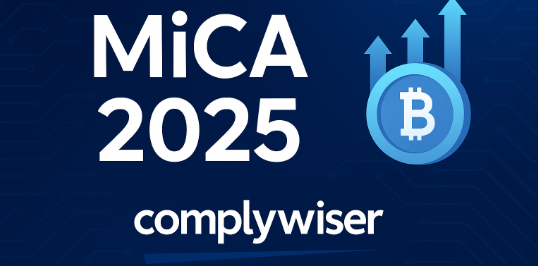MiCA Regulation in the EU: What Crypto Companies Need to Prepare for in 2025

The European Union’s Markets in Crypto-Assets (MiCA) Regulation officially came into force in June 2023, but the transitional period means that the most impactful obligations for crypto businesses will become enforceable in 2025. For many companies, 2025 will be the year of truth: only those prepared with the right compliance structures will be able to operate seamlessly across the EU.
What is MiCA?
MiCA is the EU’s landmark regulation aimed at creating a unified legal framework for crypto-assets across member states. It covers:
- Issuers of crypto-assets (stablecoins, asset-referenced tokens, utility tokens)
- Crypto-Asset Service Providers (CASPs) such as exchanges, custodians, wallet providers, and trading platforms
- Market integrity and consumer protection rules to prevent fraud, market abuse, and ensure transparency
Why 2025 Matters
The staggered implementation of MiCA means that key requirements—especially those for stablecoin issuers and CASPs—become fully enforceable in mid-2025. Firms that are not licensed or aligned with MiCA by then may face penalties, loss of access to EU markets, and reputational risks.
Key Requirements for CASPs
Crypto-Asset Service Providers will need to:
- Obtain MiCA authorization from their national competent authority.
- Implement AML/CFT procedures aligned with EU standards.
- Ensure transparency in pricing, whitepapers, and risk disclosures.
- Safeguard client funds and assets, including mandatory custody standards.
- Maintain capital requirements, ensuring financial stability.
What This Means for Crypto Companies
- Licensing is unavoidable. Even companies currently operating under national regimes will need a MiCA license.
- Costs will increase. From legal advisory to compliance teams, companies must budget for licensing and ongoing obligations.
- Opportunities will expand. MiCA also opens the door to passporting: once licensed in one EU country, a CASP can operate across the entire EU without separate licenses.
How to Prepare Now
- Conduct a gap analysis: compare your current compliance framework to MiCA obligations.
- Prepare documentation: whitepapers, risk disclosures, AML policies, and internal controls.
- Strengthen your compliance team: ensure AML officers and legal advisors are trained in MiCA.
- Engage with regulators early: being proactive with your national authority can speed up approval.
Final Thoughts
MiCA is not just another regulation—it’s a turning point for the crypto industry in Europe. For compliant businesses, it means access to the largest unified crypto market in the world. For those unprepared, 2025 could mark the end of operations in the EU.
At ComplyWiser, we help fintech and crypto companies navigate licensing, compliance, and regulatory readiness under MiCA. Preparing now will not only ensure legal operation but also create a competitive advantage when the rules take full effect.
Related articles

MiCA Compliance: Which Crypto Services Are Covered and Which Are Not?
With the MiCA regulation nearing enforcement, it’s essential for crypto companies to identify which of their services fall under its scope. This guide outlines the services regulated by MiCA, such as spot trading, custody, and issuance of crypto-assets, and clarifies which services remain outside its scope. ComplyWiser offers comprehensive support to help crypto businesses stay compliant and navigate this evolving regulatory landscape.
Read more
The Business Plan: A Crucial Element for Your MiCA Application
This article emphasizes the importance of a comprehensive business plan for crypto companies applying for MiCA compliance in the EU. A strong business plan demonstrates viability, regulatory preparedness, and operational resilience. It helps businesses stand out by showing professionalism and trustworthiness to regulators. Key sections include market analysis, financial projections, and compliance frameworks. Complywiser specializes in crafting tailored, MiCA-compliant business plans, ensuring a smooth application process by addressing governance, risk management, and compliance requirements.
Read more
Crypto-Asset Service Providers (CASPs): New Rules and Responsibilities Under MiCA
MiCA introduces a regulatory framework for Crypto-Asset Service Providers (CASPs) in the EU, focusing on registration, prudential requirements, conduct rules, and AML/CFT compliance. CASPs must be authorized, maintain capital reserves, safeguard client assets, and uphold transparency and fair practices. Compliance with MiCA ensures market stability, consumer protection, and cross-border service opportunities while reducing regulatory risks.
Read more